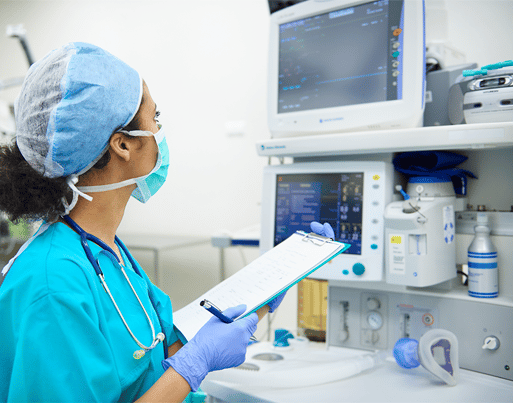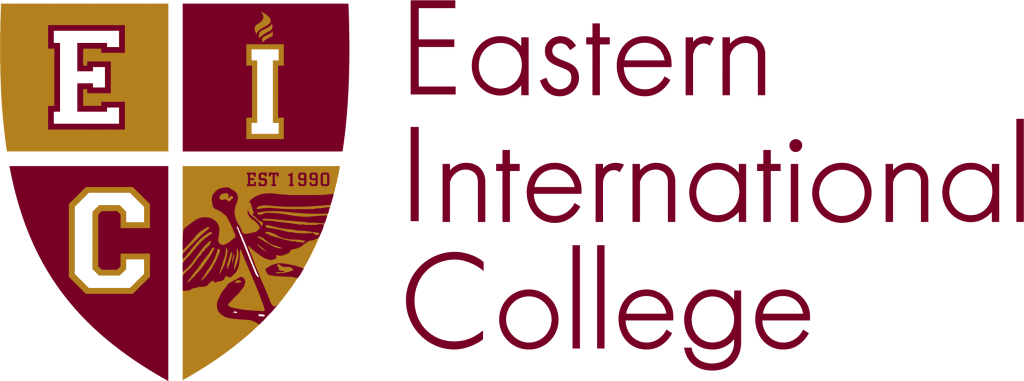Program Description
The dental hygienist is a member of the oral health team who provides treatment to prevent oral health diseases. Clinical skills include performing oral health assessments, examining head, neck and oral regions for disease, exposing and processing dental radiographs, other diagnostic assessments, debridement (removing) of deposits from the tooth structures, applying sealants and fluorides to prevent decay, providing nutritional counseling for maintenance of the oral cavity, fabricate athletic mouth guards, and other patient services allowed by the State Board of Dentistry. Dental hygienists are oral health educators within the community and plan oral health promotion strategies to better inform and serve their patients. The curriculum covers a three-year program culminating in a BS degree. The BSDH program is fully accredited by the Commission on Dental Accreditation (CODA). The Commission on Dental Accreditation (CODA) is the national programmatic accrediting agency for dental and dental-related education programs at the post-secondary level. BSDH program teaches the student the essential theoretical and hands-on knowledge to compete for entry-level positions in the field.
In addition, the program provides a framework for developing the necessary skills to expand career opportunities in education, health promotion, public health, management and research. The program is built on academic excellence and clinical expertise with a vision toward the development of a professional leader, change agent, educator and/or public health manager in Dental Hygiene.
The BSDH program is comprised of 45 semester credits of General Education and 78 semester credits of Technical courses.
Quick Links
Contact Us

program learning outcomes
- Students demonstrate and develop strategies that will prepare them to become a successful dental hygiene educator in a dental hygiene program by addressing areas such as: learning theories, teaching strategies, learning
- Students develop instructional content and plan for teaching topics for adult learners. Teaching methods, learning styles, student and instructor evaluation, and use of media will be discussed.
- Students demonstrate fundamental understanding of acquiring and applying scientific information in evidence based dental hygiene practice.
- Students demonstrate effective communication skills.
- Students demonstrate an understanding of concepts including researching alternative resources and funding opportunities, proposal writing, implementing and managing grants, developing community partnerships and collaborations, and becoming knowledgeable in policies and procedures related to public entities
General Education Coursework
| Course Number | Course Title | Semester Credits |
| BIO 101 | Anatomy and Physiology I | 4 |
| BIO 102 | Anatomy and Physiology II | 4 |
| BIO 110 | Microbiology | 4 |
| CHE 101 | General/Organic/ Biochemistry For Allied Health Professionals | 3 |
| ENG 101 | English Composition | 3 |
| ENG 302 | Research Design & Writing | 3 |
| HEA 304 | Global Health | 3 |
| MAT 103 | College Algebra | 3 |
| MAT 300 | Basic Statistics and Microsoft Excel Applications | 3 |
| PHI 302 | Bioethics | 3 |
| PSY 101 | General Psychology | 3 |
| REL302 | World Religions | 3 |
| SOC 101 | Introduction to Sociology | 3 |
| SPC 101 | Interpersonal Communications | 3 |
| Total | 45 |
Total Program Credits: 123
Total Length of Program: 36 months
program major courses
| Course Number | Course Title | Semester Credits |
| DH 100 | Dental Hygiene Preclinical Sciences | 3 |
| DH101 | Dental Hygiene Clinical Sciences I | 4 |
| DH 102 | Dental Radiology | 3 |
| DH 103 | Dental and Oral Anatomy & Physiology | 2 |
| DH 104 | General and Oral Pathology | 3 |
| DH 105 | Oral Embryology and Histology | 2 |
| DH 106 | Medical Emergencies in the Dental Office, Basic Life Support “C” AHA | 1 |
| DH 200 | Dental Hygiene Clinical Sciences II | 4 |
| DH 201 | Dental Hygiene Clinical Sciences III | 4 |
| DH 202 | Pharmacology | 2 |
| DH 203 | Periodontics I | 2 |
| DH 204 | Periodontics II | 2 |
| DH 205 | Law and Ethics for the Dental Hygienists: Ethics, Jurisprudence and Practice Management | 2 |
| DH 206 | Foundations of Nutritional Science | 3 |
| DH 207 | National Board and Case Review | 2 |
| DH 208 | Community Dentistry & Health Study | 3 |
| DH 209 | Dental Material & Lab | 2 |
| DH 210 | Prevention and Control or Oral Disease | 2 |
| DH 211 | Local Anesthesia & Pain Control | 2 |
| DH 300 | Educational Methodology for Dental Hygiene | 3 |
| DH 301 | Cultural Competency & Dental Hygiene Care for Target Populations | 3 |
| DH 302 | Educational Concepts in Dental Hygiene | 3 |
| DH 303 | Statistical & Methodological Aspects to Oral Health Research | 3 |
| DH 304 | Grant Writing | 3 |
| DH 305 | Epidemiology of Oral Diseases | 3 |
| DH 400 | Dental Practice Management with Oral Health Promotion | 3 |
| DH 401 | Management of Oral Healthcare Delivery | 3 |
| DH 402 | Dental Hygiene Care for Culturally Diverse and Special Needs | 3 |
| DH 403 | Leadership Roles for the Dental Hygiene Professional | 3 |
DH 404 Internship Dental Hygiene 0
Clinical Rotation
| TOTAL | 78 |
ADMISSIONS
- Minimum High School Diploma or recognized equivalency certificate (GED)
- Take the HESI Exam with a minimum score of 70
- Grammar–Contains a basic grammar assessment, centering on parts of speech, common grammatical errors, etc.
- Basic Math Skills–Centers on math skills needed for the healthcare field, including basic addition, subtraction, multiplication, fractions, decimals, ratios, etc.
Take a tour of our Jersey City campus, or contact us to learn more about our available allied health academic programs.

